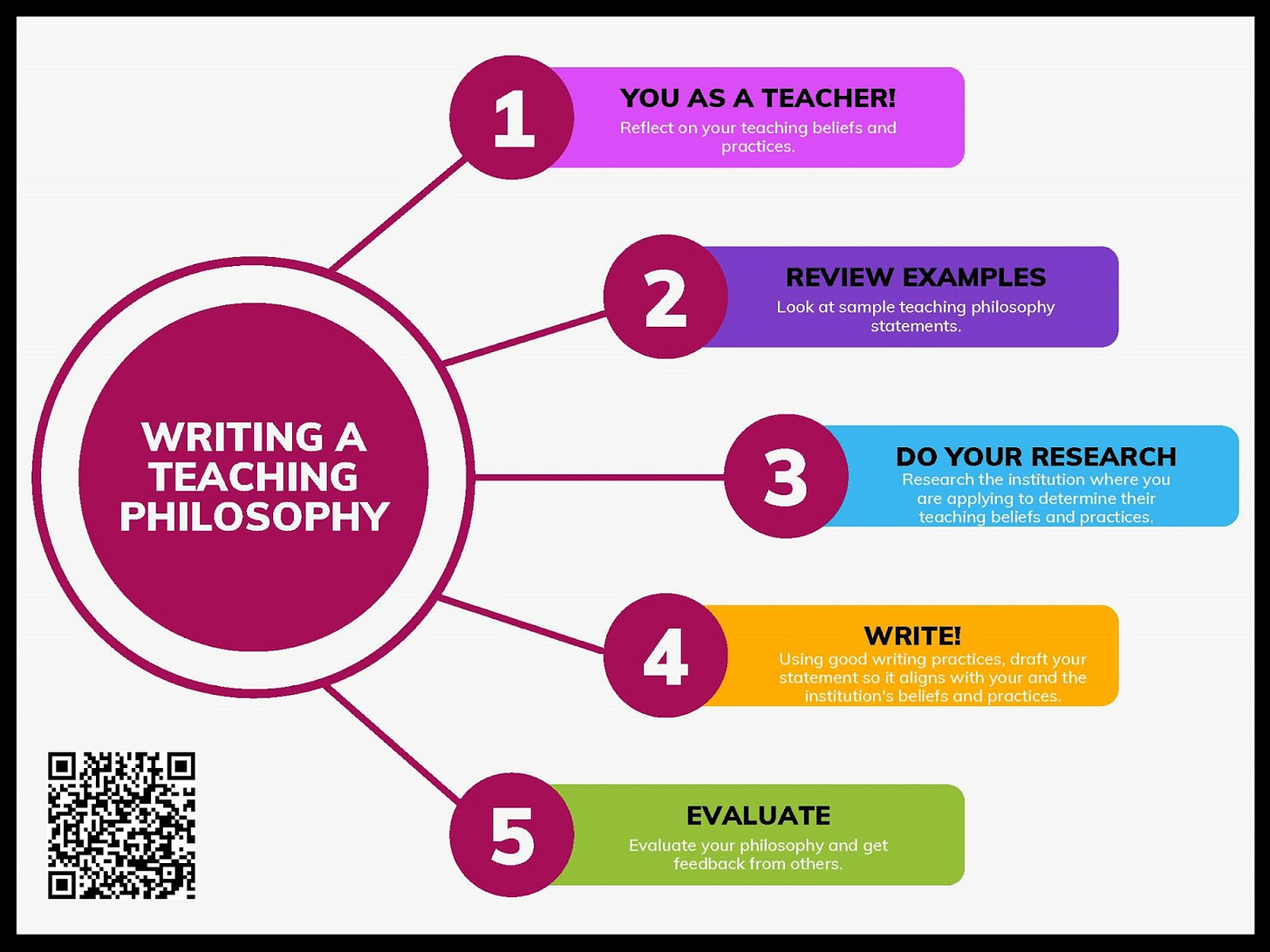Developing a teaching statement
A useful process
So I’m running a workshop on pedagogy, and one of the core activities will be about developing a teaching statement, something I feel like I’ve not done since I was in University all those years ago, so I’ve given it a crack here, in short brief, and perhaps slightly terse prose. Not surprisingly the words flew off my pen, as I’ve spent a lot of time speaking, writing and cogitating on how I do what I do as a teacher. I hope this is of interest to you, I welcome anyone to give the prompts a crack and see just how easily they can jump into it!
Developing a teaching statement:
•A Teaching Statement can address any or all of the following:
•Your conception of how learning occurs
Learning occurs when a motivated student is introduced to a piece of information by a trusted and respected authority figure; then engages with that knowledge; and then later uses or applies that knowledge to embed it into long-term memory.
•A description of how your teaching facilitates student learning
My teaching facilitates the above by building strong rapport with students; using a mixture of proven and novel or innovative pedagogies; by being excited by learning and exploring new knowledge; and by building revision into classroom routines.
•A reflection of why you teach the way you do
I teach the way I do because i’ve experimented with numerous pedagogies, theories and approaches and I’ve seen success and failure within each approach and then synthesised them in a way that makes the most sense for me. I’ve used a range of approaches and worked most hard on developing my vision for education and schooling -> and how my goal is to produce democratic citizens who know how to speak, learn, argue, and critique the world as it is - > so that they may one day change it for the better - even if only incrementally.
•The goals you have for yourself and for your students
My goals for myself and my students are the same: to love learning; and to have a passionate habit for reading; and to enact change within the world - even if only incrementally.
•How your teaching enacts your beliefs and goals
My teaching enacts my goals through a social justice lens; equal opportunities for all; learning that is accessible to all anytime, any place; a democratic approach to empower student voice; technology that supports learning whenever, wherever.
•What, for you, constitutes evidence of student learning
Evidence of student learning is multifactorial, but the things I value most are my observations and my intuition. A student who has shown independence and explored their own learning to contribute to the class is a much greater indicator of success than a 100% score on a summative test - because with a summative score, the learning stops, but personal interest and a love of learning will persist.
•The ways in which you create an inclusive learning environment
Inclusion for me is driven by my learning about ASD specifically, so I’m always taking a specific focus on the behaviours and likely antecedents that lead to certain events taking place within my classroom. But more broadly, I aim to make learning achievable for all, so that everyone can thrive, and taking a more targeted and precise approach to students with specific needs and challenges to address.
•Your interests in new techniques, activities, and types of learning
I am always learning - I see this as the core job of all teachers’ everywhere - learn so that you may share in that learning with others.
So what do you reckon? When was the last time you had a go at something like this? I dare you to give it a go.
Running Word Count (the second 100,000): 80,840


